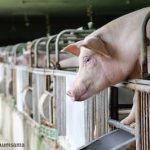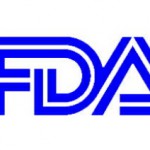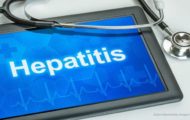The U.S. Food and Drug Administration's Center for Veterinary Medicine (CVM) is starting the process of rescinding approval of the use of carbadox, an antibiotic, to treat swine because it may leave trace amounts of a carcinogen in the meat. The agency recently reexamined the safety profile of the drug and concluded that there could be "potential risk to human health from ingesting pork, especially pork liver, derived from carbadox-treated pigs." Michael R. Taylor, FDA deputy commissioner for foods and veterinary medicine said in a statement, "the manufacturer of carbadox has failed to provide sufficient scientific data to demonstrate the safety of this drug given evidence that carbadox may result in carcinogenic residues. As a result, FDA's Center for Veterinary Medicine is taking … [Read more...]
Advocates Sue FDA Over Ractopamine Used in Food Animals
The Center for Food Safety, the Center for Biological Diversity, and Sierra Club filed a lawsuit against the U.S. FDA on November 6, 2014 for approving ractopamine in a series of animal drugs used in food production "without fully examining how they affect people, animals, and the environment." The government approved those drugs for rapid weight gain in food animals. The drug is given to pigs, cattle, and turkeys to cause quick weight gain. Between 60 and 80% of pork sold in U.S. supermarkets comes from pigs treated with this drug. The lawsuit states that the FDA approved 11 ractopamine-based drugs with no analysis of environmental and public health risks. Paige Tomaselli, senior attorney for CFS said, "FDA is basing controversial drug approvals on incomplete and inadequate … [Read more...]
CSPI Wants to See Study of Illegal Drug Residues in Milk
The Center for Science in the Public Interest (CSPI) filed a Freedom of Information Act request for survey data from the FDA on illegal drug residues in the U.S. milk supply. Food safety advocates have been waiting for two years for the government to release this data. The FDA survey was conducted in 2012, giving the agency more than 2 years to analyze the data and prepare and release a report. CSPI senior food safety attorney David Plunkett said, "consumers have a right to know what's in their milk, and if there are dangerous drugs in it, they need to know what the FDA is doing about that. Why are those dairies that either can't or won't follow the rules allowed to continue to market milk?" A quick browse through FDA warning letters sent to dairies around the country finds that … [Read more...]
FDA Warns Malcore Livestock of Food Safety Violations
John Malcore Livestock, LLC of Luxemburg, Wisc. has committed a number of food safety violations, according to a June 27 warning letter from the U.S. Food and Drug Administration (FDA). The FDA’s investigation of the livestock operation began after the discovery that, In late December, Malcore Livestock offered an adulterated animal for sale. “Under section 402(a)(2)(C)(ii) of the FD&C Act, 21 U.S.C. § 342(a)(2)(C)(ii), a food is deemed to be adulterated if it bears or contains a new animal drug that is unsafe under section 512 of the FD&C Act, 21 U.S.C. § 360b. Further, under section 402(a)(4) of the FD&C Act, 21 U.S.C. § 342(a)(4), a food is deemed to be adulterated if it has been held under insanitary conditions whereby it may have been rendered injurious to health,” the … [Read more...]
USDA Expanding Testing for Illegal Drug Residues in Meat
On July 2, 2012, the United States Department of Agriculture's Food Safety and Inspection Service (FSIS) announced some new steps to protect the food supply. Later this summer, FSIS will launch a new approach for testing for harmful levels of chemical residues in meat, poultry, and egg products. This is part of the Food Safety Modernization Act. Under Secretary for Food Safety Dr. Elisabeth Hagen said, "the new testing methods being announced today will help protect consumers from illegal drug residues in meat products. By allowing us to test for more chemical compounds from each sample, these changes will enable USDA to identify and evaluate illegal drug residues more effectively and efficiently. The National Residue Program (NRP) tests for chemical compounds, including approved and … [Read more...]









